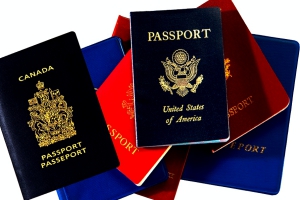
NigeriaMmigration Regulations: Accompressiveguide pour lestiniques-fonds et les professionnels
Naviguer au Nigéria’Les réglementations d'immigration sont essentielles pour les investisseurs étrangers, entreprises offshore, et les expatriés qui cherchent à vivre, travail, ou faire des affaires dans le pays. Le cadre réglementaire du Nigéria offre diverses options de visa pour s'adapter à différents objectifs d'entrée. Ce guide met en évidence les aspects clés de ces réglementations, Vous aider à prendre des décisions éclairées sur les processus de conformité et de demande.
Catégories de visas au Nigéria
Le Nigéria propose quatre principaux types de visas adaptés aux hommes d'affaires et aux professionnels:
- Visa à l'arrivée (VoA)
- Visa d'affaires
- Sous réserve de Régularisation (STR) Visa
- Permis de travail temporaire (TWP)
1. Visa à l'arrivée (VoA)
Le programme Visa on Arrival s'adresse aux professionnels des affaires ayant des besoins de voyage urgents ou ceux qui résident dans des pays sans ambassades nigérianes. Les candidats éligibles comprennent des cadres de sociétés multinationales, membres de la délégation du gouvernement, et les titulaires de documents de voyage officiels d'organisations internationales reconnues.
Processus de demande
Il existe deux façons de demander un visa à l'arrivée lettre d'approbation:
- Par e-mail: Envoyer une demande au contrôleur général de l'immigration, y compris vos coordonnées personnelles, but de la visite, et itinéraire de voyage, ainsi que des copies numérisées de votre page de données de passeport et du billet de vol de retour.
- À travers un représentant au Nigéria: Votre représentant peut soumettre la demande en votre nom, Joindre des détails similaires et des documents de support.
Après avoir reçu la lettre d'approbation, Le demandeur peut procéder au Nigéria et obtenir son visa au bureau VOA désigné au port d'entrée.
Exigences au point d'entrée
- Preuve du paiement des frais de visa en ligne
- Passeport valide (Validité minimum de six mois)
- Billet de retour
- Deux photographies de passeport récentes
2. Visa d'affaires
Le visa d'affaires est conçu pour les voyageurs visitant le Nigéria pour des réunions, conférences, salons, négociations contractuelles, et d'autres activités professionnelles.
Éligibilité et exigences
Les candidats doivent fournir:
- Un passeport valable pendant au moins six mois
- Deux photographies récentes de la taille d'un passeport
- Preuve de fonds suffisants
- Réservation de l'hôtel ou adresse hôte
- Billet de vol de retour
Processus de demande
Les candidatures sont soumises en ligne via le service d'immigration du Nigéria (NIS) portail. Les formulaires remplis et les reçus de paiement doivent être présentés dans les ambassades nigérianes ou les centres de demande de visa désignés. Le traitement prend généralement 2 à 3 jours ouvrables.
Validité
Le visa d'affaires est valable pour un séjour maximal de 90 jours et n'est pas extendable. Il ne peut pas être utilisé pour obtenir un emploi au Nigéria.
3. Sous réserve de Régularisation (STR) Visa
Le Visa STR s'applique aux expatriés à la recherche d'un emploi ou d'une résidence à long terme au Nigéria. Cette catégorie est idéale pour les employés de l'entreprise, missionnaire, des chercheurs, et leurs personnes à charge.
Exigences pour les employeurs et les candidats
Les employeurs doivent fournir des approbations de quotas d'expatrié, offrir des lettres, et les résolutions du conseil d'administration (le cas échéant). Les candidats ont besoin de passeports valides, qualifications éducatives, et les formulaires de visa remplis.
Après son arrivée au Nigéria avec un visa STR, Les expatriés doivent demander un permis de séjour, leur permettant de vivre et de travailler légalement dans le pays.
4. Permis de travail temporaire (TWP)
Le permis de travail temporaire est délivré à des experts étrangers fournissant des services spécialisés tels que l'installation d'équipement, entretien, entraînement, ou audit.
Éligibilité et application
Les entités d'entreprise au Nigéria doivent demander le TWP au nom de l'expert. Les documents requis comprennent une lettre d'approbation de visa, Certificats d'incorporation de l'entreprise, et preuve d'un contrat existant. Le traitement prend généralement deux jours ouvrables.
Validité
Le twp permet de séjourner jusqu'à 90 jours et convient aux affectations à court terme.
Investisseurs étrangers: Permis d'entreprise et quota d'expatrié
Le Nigéria oblige les investisseurs étrangers à obtenir un permis commercial et un quota d'expatrié avant d'opérer dans le pays.
- permis d'affaires: Accorde l'autorisation de fonctionner comme une entreprise appartenant à l'étranger au Nigéria.
- Quota Expatriate: Permet aux entreprises d'embaucher du personnel étranger pour des rôles et des durées spécifiques.
Les deux permis sont essentiels pour le respect des lois nigérianes de l'immigration et sont des conditions préalables à l'obtention de visas STR ou de permis de résidence.
Règles de rendez-vous et de règles d'immigration
Citoyens de la CECEAS (Communauté économique des États ouest-africains) Les pays bénéficient de privilèges d'entrée au Nigéria. Ils sont autorisés un séjour de 90 jours sans visa mais doivent s'inscrire auprès du Nigéria Immigration Service pour obtenir une carte de résidence pour l'emploi ou les activités commerciales.
Les principaux plats à retenir pour la conformité
Comprendre et adhérer au Nigéria’La réglementation de l'immigration est cruciale pour éviter les retards et assurer la résidence légale. Whethery’regoteur, expatrié, ou voyageur d'affaires, Rester informé de la catégorie de visa et du processus de demande approprié peut vous faire gagner du temps et des efforts.
Conseil professionnel sur les réglementations d'immigration nigériane
Bien que ce guide donne un aperçu des réglementations d'immigration du Nigéria, La recherche d'assistance juridique professionnelle garantit la conformité aux lois locales et la manipulation en douceur de vos besoins d'immigration. Les experts juridiques peuvent aider à sécuriser les permis commerciaux, quotas d'expatrié, Et la résidence permet de courir à votre situation.
Pour plus d'informations ou une assistance personnalisée, courriel à lexartifexllp@lexartifexllp.com; appeler ou WhatsApp +2348039795959.
